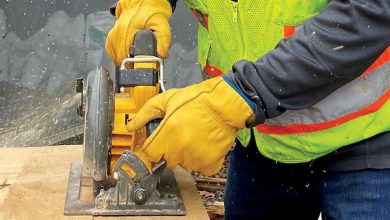How Old Do You Have to Be Carpentry
To become a carpenter or joiner, you can pursue college courses or apprenticeships.
Some colleges offer part-time, short courses in carpentry and joinery.
Apprenticeships in carpentry and joinery are open to individuals who are at least 16 years old.
Apprentices typically work a minimum of 30 hours a week, dividing their time between on-the-job experience and college or training provider.
An intermediate carpentry and joinery apprenticeship generally takes around two years to complete.
While some employers may require GCSEs, including English and maths, for apprenticeships, this is not always the case.
It is important to gain work experience in the construction industry and develop additional skills such as machine and tool usage, knowledge of building and construction, design skills, attention to detail, verbal communication skills, working well with others, initiative, and computer proficiency.
Qualifications can be obtained through college courses or apprenticeships, and a Construction Skills Certification Scheme (CSCS) card may be necessary for working on construction sites.
Did You Know?
1. In ancient Greece, apprentices interested in learning carpentry had to be at least 14 years old to start their training under a master carpenter.
2. The concept of a “journeyman” in carpentry originated during the Middle Ages. Once a carpenter completed their apprenticeship and became proficient in the craft, they would travel and work with different masters to gain further experience before being considered a master themselves.
3. The United States, specifically the state of Pennsylvania, has the oldest active carpenters’ union in North America. Founded in 1881, the United Brotherhood of Carpenters and Joiners of America has been instrumental in shaping labor laws and working conditions for carpenters across the country.
4. Though carpentry is often associated with woodworking, the term “carpenter” actually comes from the Latin word “carpentarius,” which means “wagon maker.” This is because carpenters in ancient Rome were primarily tasked with constructing wagons and chariots instead of working with wood.
5. Japanese carpentry has a long and distinguished history, with some techniques dating back over a thousand years. The traditional Japanese carpentry method, known as “miyadaiku,” relies solely on wood joinery techniques without the use of nails or glue. This technique not only creates incredibly strong and durable structures but also allows for disassembly and reassembly if needed.
College Courses or Apprenticeships for Carpentry and Joinery
Carpentry and joinery are skilled trades that require a combination of theoretical knowledge and practical experience. Individuals interested in pursuing a career in carpentry have two main options for learning the trade: college courses or apprenticeships.
Some colleges offer part-time, short courses in carpentry and joinery. These courses are designed to provide students with a foundation of knowledge and skills in carpentry, allowing them to gain some basic understanding of the trade. However, it is important to note that these short courses may not provide the same level of comprehensive training as an apprenticeship.
Alternatively, apprenticeships in carpentry and joinery are open to anyone over the age of 16. Apprenticeships provide a more immersive and hands-on learning experience, combining on-the-job training with classroom-based instruction. This allows apprentices to apply their theoretical knowledge in a practical setting, gaining valuable skills under the guidance of experienced professionals.
Age Requirement for Apprenticeships in Carpentry and Joinery
To embark on an apprenticeship in carpentry and joinery, individuals must meet certain age requirements. In most cases, apprenticeships are open to anyone over the age of 16. This means that individuals can start their apprenticeship journey at a relatively young age, straight out of school or college.
By setting the minimum age requirement at 16, apprenticeships provide an excellent opportunity for young individuals to kick-start their career in the construction industry. It allows them to gain valuable professional experience while also earning a wage, providing a practical and financially viable alternative to continuing in full-time education.
- Apprenticeships in carpentry and joinery are open to individuals over the age of 16.
- Starting an apprenticeship at a young age allows individuals to gain valuable experience in the construction industry.
- Apprenticeships provide a practical and financially viable alternative to full-time education.
“Apprenticeships provide an excellent opportunity for young individuals to kick-start their career in the construction industry.”
Structure of Apprenticeships in Carpentry and Joinery
Apprenticeships in carpentry and joinery are structured programs that combine practical experience with formal education. Apprentices typically work a minimum of 30 hours a week, splitting their time between on-the-job experience and attending college or training providers.
During their on-the-job training, apprentices work alongside experienced carpenters and joiners, learning valuable skills and techniques through hands-on practice. This allows them to develop a deep understanding of the trade and gain real-world experience.
In addition to on-the-job training, apprentices also spend time attending college or training providers. Here, they receive classroom-based instruction, learning the theoretical aspects of carpentry and joinery. This formal education complements the practical training they receive on the job, providing a well-rounded and comprehensive learning experience.
Duration of Intermediate Carpentry and Joinery Apprenticeship
The duration of an intermediate carpentry and joinery apprenticeship is typically around two years. During this time, apprentices acquire a wide range of skills and knowledge, gradually progressing from basic tasks to more advanced techniques.
The apprenticeship is designed to provide apprentices with a thorough understanding of carpentry and joinery, allowing them to confidently take on various projects in the future. They learn how to read technical drawings, select and use appropriate materials and tools, and construct and install different wooden structures.
By the end of the two-year program, apprentices are equipped with the necessary skills and qualifications to pursue a career in carpentry and joinery. They have gained practical experience through their on-the-job training and a solid theoretical foundation through their college-based studies.
- The duration of an intermediate carpentry and joinery apprenticeship is typically two years
- Apprentices acquire a wide range of skills and knowledge, progressing from basic tasks to more advanced techniques
- The apprenticeship provides a thorough understanding of carpentry and joinery
- Apprentices learn to read technical drawings, select and use appropriate materials and tools, and construct and install wooden structures
- By the end of the program, apprentices are equipped with the necessary skills and qualifications to pursue a career in carpentry and joinery.
Additional Skills and Qualifications for a Career in Carpentry
In addition to the skills and knowledge gained through college courses or apprenticeships, there are several additional skills that are beneficial for a career in carpentry. These include:
- Machine and tool usage
- Knowledge of building and construction
- Design skills
- Attention to detail
- Verbal communication skills
- The ability to work well with others
- Initiative
- Computer proficiency
Furthermore, it is important to note that some employers may require apprentices to have certain qualifications, such as GCSEs including English and maths. However, this requirement varies from employer to employer, and not all apprenticeships have the same educational prerequisites.
Moreover, obtaining a Construction Skills Certification Scheme (CSCS) card may be necessary to work on construction sites. This certification ensures that individuals have the necessary health and safety knowledge and skills required in the construction industry.
Overall, a career in carpentry offers numerous opportunities for individuals of various ages. Whether through college courses or apprenticeships, individuals can embark on a fulfilling and rewarding journey in this skilled trade.
Check this out:
Frequently Asked Questions
Can you be a carpenter apprentice at 16?
Yes, it is possible to become a carpenter apprentice at 16. An apprenticeship in carpentry and joinery offers a great opportunity to enter the construction industry. As long as you are over 16 years old, you can apply for an apprenticeship where you will be employed by a company and work a minimum of 30 hours per week. This allows you to gain valuable hands-on experience while learning the skills and knowledge necessary to become a skilled carpenter.
What GCSE do you need for carpentry?
To pursue a career in carpentry, it is generally recommended to have some GCSEs, particularly English and maths, or their equivalent, for an intermediate apprenticeship. For an advanced apprenticeship, it is typically required to have 5 GCSEs at grades 9 to 4 (A* to C), including English and maths, or their equivalents. These educational qualifications provide a foundation of knowledge and skills that are essential for success in carpentry and the ability to progress in the field.
How old are most carpenters?
The majority of carpenters fall within the age range of 35 to 45 years old, with the average age being 41. This age group represents a significant portion of carpenters, indicating a level of experience and expertise within the industry. Additionally, various ethnicities are represented among carpenters, with the majority being White, followed by Hispanic or Latino, Black or African American, and Unknown. These diverse backgrounds contribute to the richness and inclusivity of the carpentry profession. As for the demand for carpenters, Atlanta, GA stands out as an area where their skills are most sought after, suggesting a thriving construction industry and opportunities for carpenters in this region.
How do I become a carpenter UK?
To become a carpenter in the UK, you can begin by gaining practical experience on construction sites or through carpentry-related activities. While there are no mandatory qualifications, it is beneficial to acquire on-site experience and develop your carpentry skills. A worthwhile path to consider is enrolling in a carpentry course at a nearby further education college, where you can learn the foundational principles of the trade. Another option is to seek an apprenticeship with an established carpentry firm, allowing you to gain hands-on experience and learn from experienced professionals in the field.


